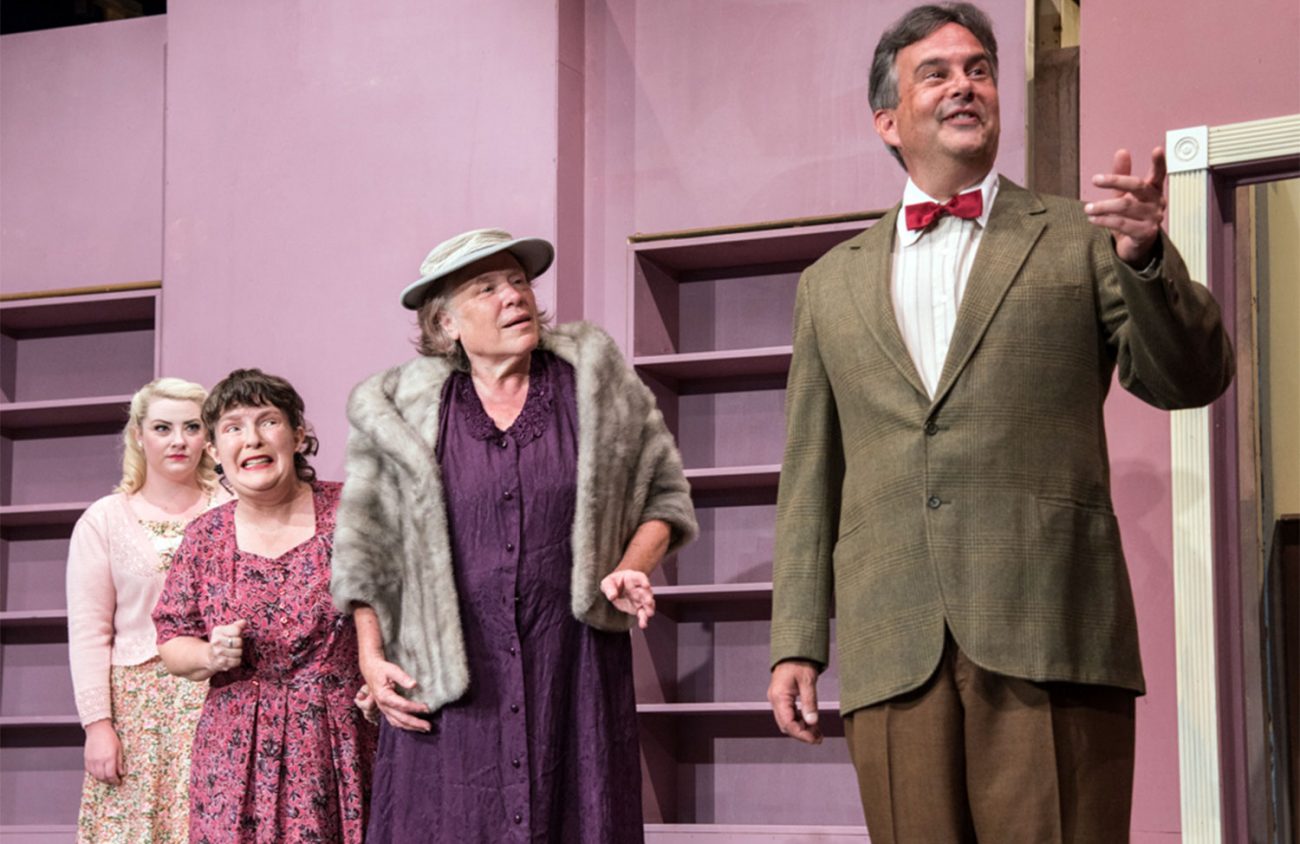In retrospect, it strikes me as odd that I’ve never seen the 1950 film version of Harvey, Mary Chase’s Pulitzer-winning play about a pleasantly eccentric gentleman named Elwood P. Dowd and his boon companion Harvey, an exceedingly tall rabbit who’s invisibility is folly and frustration for Dowd’s abashed family as well as the madcap medical professionals they hire to “help” him.
Odd, because I absolutely adore Jimmy Stewart, who plays Dowd in the movie adaptation. Arguably the greatest Hollywood actor of all time, I’m sure Stewart is marvelous.
The real reason I’ve never seen Harvey, Stewart or no Stewart, is that I absolutely loathe invisible-friend plots and all the torment of disbelief they play upon. They drive me crazy. I still haven’t gotten over that whole Snuffleupagus thing.
Be that as it may, I walked into Very Little Theater’s current production of Harvey with very little understanding of what I was in for. It was nice knowing I wouldn’t have to compare Russell Dyball’s performance with that of Stewart.
Not that it would have mattered, though, because Dyball, as Dowd, is singularly mesmerizing — a gallant and composed presence who, with supreme irony, is at once the cause and the cure of the chaos he innocently unleashes. Dyball’s comic balancing of naiveté and wisdom anchors this production, giving it just the right tone of goodwill amid the play’s darker themes of insanity and alcoholism, treated with a feathery touch by the playwright.
The cast members surrounding Dyball match him step for jaunty step, creating a madcap atmosphere that never overwhelms the play’s quieter calls for tolerance and understanding.
As Dowd’s long-suffering sister Veta, Mary McCoy is pitch-perfect, the frenetic portrait of a self-serving but not unkind woman on the verge of co-dependent breakdown. McCoy plays the role as though possessed by an anxious demon, and her slapstick tug-of-war between filial loyalty and social ambition garner some of the show’s biggest laughs.
Also good are Sarah Nesslin as Veta’s lovelorn daughter Myrtle May; Kelly Oristano and Rod Anderson as the sanitarium doctors Sanderson and Chumley, and Tere Tronson as Chumley’s wife Betty; Katelyn Lewis as the sanitarium’s nurse, Betty; Hershell Norwood as Judge Omar Gaffney; Eve James as Miss Johnson; Susan Creed as Mrs. Chauvenet; Adam Leonard as the orderly Wilson; and Dave Smith as the cab driver.
The love that director Kari Boldon Welch feels for this play is evident in her careful direction, which imbues this comedy of errors with equal parts humanity, pathos and social criticism; Welch’s touch is simultaneously smart and carefree, and respectful throughout. She keeps the comedy light, but never lightweight.
A special nod to Welch’s production team, and especially to scenic and lighting designer Michael Walker, who’s surprising between-scene set changes add a clever metaphysical commentary to the action on stage.
Especially at this tumultuous and difficult time in our history, art is assessed for its timeliness. So it was when Chase wrote Harvey, right in the teeth of a World War. Does Harvey qualify as escapist entertainment, innocuous and fluffy as the rabbit that can’t be seen?
Yes and no. The play takes little issue with the world at large, and its politics are implicit to the point of perforation, but rather than escaping into fantasy, it uses “fantasy” to burrow into our core human values. In that sense, its comedy is an escape hatch — a means of escaping the noise and reorienting ourselves toward the eternal realities of loving-kindness.
As Dowd says at one point, perfectly addressing the rabbit in the room, as it were: “In this world, you must be oh so smart, or oh so pleasant. Well, for years I was smart. I recommend pleasant.”
Harvey plays through Aug. 24 at Very Little Theatre; times and tickets at thevlt.com.
